This resource guide is the fruit of 15+ years of intensive dharma studies. I tried to put the best of everything I’ve encountered into an accessible, progressive guide to help you deepen your own journey. It felt like an impossible task to make it readable, but with the table of contents, hopefully it will flow smooth enough!
Here are a few initial notes:
1) This guide will emphasize “depth” into a single tradition (Theravada-Vipassana Buddhist Meditation / mindfulness / insight meditation), but also “breadth,” exploring how other resources/teachings can really help to expose blindspots, develop complementary skills, and take us much deeper.
2) Books & media are helpful, but actual direct experience is what makes the real changes – pay close attention to the resources to actually dive into meditation, such as guided meditations, courses, and live opportunities.
3) I’ve direct linked to anything available free online, although basically all of these are also available as hardcopies for sale, and some as audiobooks. While free is great, I personally prefer mediums that don’t involve looking at a screen, so I’d generally recommend printing them, or buying the book / audiobook.
May this be of benefit to you!
Table of Contents
- 1 The Quick & Fast Version – Top Recommendations
- 2 Studying Theravada-Vipassana Meditation
- 2.1 A Few Great Books for Total Beginners
- 2.2 A Few Books Great for Intellectually/Scientifically Inclined Beginners
- 2.3 Intro Books to Theravadan Buddhism & Insight Meditation
- 2.4 Online Meditation Courses (mostly free)
- 2.5 Intermediate (most my favorite books)
- 2.6 Teachings on Love
- 2.7 The Four Most Essential Online Resources
- 2.8 Advanced (diving into the suttas)
- 3 Technology
- 4 Teachers, Retreats, Communities and Practicing in “The Real World”
- 5 Broadening Your Practice
- 5.1 Robert Augustus Masters (Emotions, Shadows & Spiritual Bypassing)
- 5.2 Adyashanti & Other Non-Dual Teachers
- 5.3 Zen Buddhism
- 5.4 Overcoming Shame & The Inner Critic
- 5.5 Dr. Andrew Weil & Balanced Living
- 5.6 Byron Katie & the Direct Investigation of Mind
- 5.7 After a Major Insight or Spiritual Breakthrough
- 5.8 Special Topics (ADHD, Pain, Habits, Anxiety, Trauma, etc.)
- 5.9 Yoga
- 5.10 Spiritual Biographies
- 5.11 Assorted Others
- 6 For Fun
The Quick & Fast Version – Top Recommendations
You’re about to encounter an enormous guide that might seem overwhelming, so I thought I’d right away offer my top recommendations that get right to the point. Feel free to only read this.
- For total beginners to Eastern Spirituality, try The Dalai Lama’s The Art of Happiness. If you are more intellectually inclined, go for Sam Harris’ Waking Up: A Guide to Spirituality without Religion. Inversely, if you are going through a tough time, try Pema Chodron’s When Things Fall Apart.
- Easily the #1 book I recommend is Gil Fronsdal’s, The Issue at Hand, which is a concise & excellent presentation of Buddhism and meditation. Part of what makes it so great is that it is impactful for both beginners and intermediate students.
- Take a meditation course. A few possibilities include:
- My live, bi-annual Awareness+Wisdom Insight Meditation course
- This short & easy course for total beginners to mindfulness meditation
- Gil Fronsdal’s 6-week intro to Insight Meditation course.
- An in-depth online meditation course with two of the most senior Insight Meditation teachers
- Read my favorite meditation book, Relax & Be Aware, by my teacher Sayadaw U Tejaniya. He also has several books available for free download on his website — you could read the excellent Don’t Look Down on the Defilements, They Will Laugh At You in less than an hour.
- Broaden your practice by reading:
- Bhikkhu Bodhi – The Noble Eightfold Path. Short & straightforward, perhaps the best book I’ve read that explains the greater Buddhist framework.
- Ajahn Jayasaro – On Love. Could read in one sitting – short, deep & original while staying true to the classic Buddhist teachings.
- Robert Augustus Masters – Spiritual Bypassing. It is important to learn how meditation can be used to avoid our wounding vs. genuinely heal, transform & grow.
- Kristin Neff – Self-Compassion. Also, check out the free meditations and exercises on her website. Meditation without heart falls flat – important to find some way to bring it in.
- Adyashanti – True Meditation. Peppering our meditation with a little non-dual simplicity helps ground us in the essence of the practice.
- Rob Burbea – Seeing that Frees. When you’re interested in a more nuanced book with seriously deep meditative wisdom.
- Keep Practicing!
- Try Insight Timer, get involved with a local community, go on a retreat, commit to practicing every day, even if only five minutes!
- Parooze the rest of this list at your leisure.
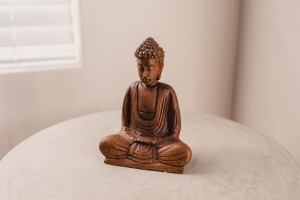
Studying Theravada-Vipassana Meditation
A Few Great Books for Total Beginners
No spiritual or meditation practice will last very long if we’re not connected to our “why.” These books won’t give you a comprehensive view of the path, but they do an EXCELLENT job of showing how Buddhism & meditation lead to the greatest why: happiness / the end of suffering.
- Dalai Lama – The Art of Happiness. This best-seller was the first book I ever read on Eastern Spirituality and it changed the course of my life.
- James Baraz – Awakening Joy. Presents key Buddhist concepts through the lens of joy, though doesn’t particularly feel “Buddhist.” It’s very well written, like the sort of thing you’d expect on the New York Times bestsellers list.
- Thich Nhat Hanh – Peace in Every Step. A Zen teacher offers a short, simple read on the flavor of Mindful Happiness. Although, Thich Nhat Hanh has written over 100 books, and I think any of them would be a great start. He writes with such a timeless simplicity that it almost doesn’t matter what the particular title is; the essence of dharma always comes through, and is just as suitable for beginners as long-term practitioners.
- Pema Chodron – When Things Fall Apart: Heart Advice for Difficult Times. The movement towards happiness is often more about working with our suffering. This is a classic book if you’re going through a tough time, and looking for spiritual guidance.
A Few Books Great for Intellectually/Scientifically Inclined Beginners
For people who have never been able to stomach traditional religion, or want a “spirituality” grounded in science and/or pragmaticism, these books will provide the “buy-in” necessary to get the ball rolling.
- Sam Harris – Waking Up: A Guide to Spirituality without Religion. There’s probably no book in the past few decades that’s gotten more “thinking-people” interested in meditation than this one. He’s also got a subscription-based meditation app.
- Shinzen Young – The Science of Enlightenment. Shinzen is a meditator first and scientist second – this has a very “first-person” feel to it. He also has a lot of great material on his youtube channel.
- Honorable Mention:
- Stephen Batchelor – Buddhism without Beliefs. For those with philosophical leanings.
- Rick Hanson – Buddha’s Brain. For those with neuroscience leanings.
Intro Books to Theravadan Buddhism & Insight Meditation
- Gil Fronsdal – The Issue at Hand. This is the #1 book I recommend to people who are interested in Buddhism & meditation. Short, concise and impressively comprehensive.
- Read my very short article detailing the essence of Vipassana Meditation
- Howie Cohn – Invitation to Meditation. Feels like Eckhart Tolle’s “The Power of Now,” but more down-to-earth. I read it in 30 minutes. Captures the spirit of meditation very nicely.
- Bhante Gunaratana – Mindfulness in Plain English. The Issue at Hand will give you a little more of a well-rounded view of the greater Buddhist Path, and this book will give a little more of a well-rounded view of Meditation. It’s an excellent read.
- Honorable Mention:
- Thich Nhat Hanh – The Heart of the Buddha’s Teaching. This is actually a Zen-inspired book, but he does such an excellent job of giving an intro to Buddhism, I had to include it here.
- Meditation Posture – A four-page online guide to posture by an Insight Meditation teacher.
- Joseph Goldstein – Insight Meditation: The Practice of Freedom. Joseph is one of the most popular and wise Insight Meditation teachers around. I highly recommend anything he has written (he also has 800+ free talks here, which I listen to regularly!).
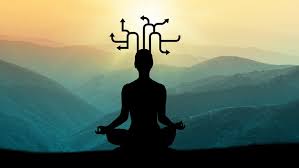
Online Meditation Courses (mostly free)
- Insight Meditation Center – six week online insight meditation course. Once or twice a year they also do it with donation-based teacher guidance (via Skype or phone). Once you finish the above course, you can also do the intermediate course. These courses aren’t as polished on a marketing/presentation level as most the others, but the content is rock solid. They are also put on by Gil Fronsdal, who shows up in this guide many times.
- Insight Meditation: An In-Depth Course on How to Meditate. Costs over $100, though if you’re really committed to learning meditation, a course with this depth & precision, taught by such a high caliber of teachers (Joseph Goldstein & Sharon Salzberg) is going to blow out of the water most of the other courses.
- Bhikkhu Analayo – The Buddha’s Four Foundations of Mindfulness. This is an intermediate-level course that takes an accessible yet deep dive into the Buddhist text that most clearly describes meditation. Bhikkhu Analayo is also a very deep practitioner who doubles as perhaps the world’s leading scholar on this particular text (his book on “Satipatthana: The Direct Path to Realization” is in the intermediate section). I highly recommend taking this course!
- 40 Day Mindfulness Course from two well-respected Western Dharma teachers (Jack Kornfield & Tara Brach). Geared towards beginners with a little bit of a self-help kinda vibe (both teachers double as Psychotherapists). The first link is a special link to get the course for free (with no course description), although here is the “retail link” that describes the course in detail.
- 14 Day Mindfulness Course for Beginners. This is a well put together, video-based course that’s great for beginners, and a little more secularly-focused. On the same site, they have about a dozen more related mindfulness courses for free.
- Unified Mindfulness Course. Created by Shinzen Young (see above: The Science of Enlightenment), his approach is a bit hyper-articulate, and takes a little getting used to, though it’s quite excellent. In reality, this is probably more in intermediate territory.
- There are loads of other great online courses that are quite expensive that I haven’t included, such as these ones, which include contact with highly qualified teachers.
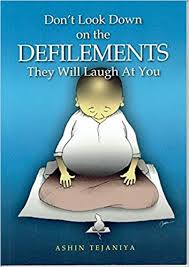
Intermediate (most my favorite books)
Once you’ve got down the basics, these books/teachers offer some real juice on how to deepen and expand your practice. I’ve personally found a home in the mindfulness-of-mind style of practice, so even though the distinction between mind-focused and body-focused is somewhat artificial (all teachers are always both!), I’ve grouped the teachers into these two loose categories just for the sake of organization.
Mindfulness-of-Mind Teachers
These teachers are less about specific techniques, and more about directly studying the mind and learning on a deep level about cause & effect / suffering / letting go / etc:
- Sayadaw U Tejaniya. My core teacher, his wisdom-focused short book “Don’t Look Down the Defilements” literally got me to ordain as a monk for two years. His more recent book, “Relax & Be Aware,” I think is his most polished. “Awareness Alone is not Enough” is a phenomenal Q & A style resource guide. “Dhamma Everywhere” is a classic. Most of his books are available free in the first link, and you can also get hard copies here, as pay-what-you-like.
- He also has hundreds of Q & A sessions on Dharmaseed – The Maui retreat is top notch – apart from the first Morning instructions, which is helpful as it introduces the method, I’d listen mostly to the Q & A sessions.
- Ajahn Sumedho – Intuitive Awareness. His wise, simple & earthy audio also shines: here’s a 10-day retreat, another 1,300 talks, and also a larger collection of books.
- Ajahn Chah – Food for the Heart. One of the grandfathers of Western Dharma, he has an earthy, wisdom-focused teaching style that never really grows old. Similar to his student Ajahn Sumedho, the feel and spirit of his teaching is more essential than any specifics. He has many other books available here, but Food for the Heart is a great start.
- Pramote Pamojjo. Similar to the mindfulness-of-mind style of Sayadaw U Tejaniya, I benefited greatly from these teachings. Loads of books and talks, but you could start with The Path to Enlightenment.
- U Tejaniya Students. I’m including here an eight-day retreat in the U Tejaniya style by three of his senior Western Students: Carol Wilson, Steve Armstrong and Alexis Santos. Listening to this collection of talks will help immensely in understanding U Tejaniya. Highly recommended. Also, if you like their approach, Steve and Carol in particular also have hundreds of other great talks on Dharmaseed, as well as their colleague, Andrea Fella.
Mindfulness-of-Body Teachers
Any teacher who made the “intermediate” section is oriented towards liberation, deep practice and wisdom. The distinction between the mind & body sections is more about style – these teachers put a little more emphasis on building wisdom through body-based practices, such as mindfulness of breathing or various concentration methods.
- Rob Burbea – Seeing that Frees. He definitely assumes you already know the basics of Insight Meditation, and from that foundation, gives a very deep and penetrative guide to wisdom & insight. One of the best books out there at explaining the finer layers of meditative wisdom. He also has lots of great talks on dharma seed, such as his full retreat on the jhanas.
- Guy Armstrong – Emptiness: a Practical Guide for Meditators (1st two chapters free here). This is the one of better explanations I’ve heard of this oh-so-misunderstood Buddhist concept. I also love his audio-talks. Make sure to listen to “Working with Difficult Emotions.” I also found his two-part series on the history of early Buddhism really interesting.
- Patrick Kearney. I listened to one of his entire retreats, and it significantly deepened my understanding of the dhamma and meditation. Particularly the AM talks that start with “tracking,” which offer little guided meditation experiments that helped me experientially learn many key concepts. If you are interested in the Mahasi Method, the first two talks give an excellent explanation.
- B Alan Wallace – The Attention Revolution. He is a Tibetan Buddhist teacher, so his approach and system is a bit different than Theravada-Vipassana. In turn, he offers some very contrasting opinions on the path, which could potentially be confusing, but he’s also brilliant, articulate and a very deep practitioner. I learned a lot by studying some of his works.
- Other notable teachers:
- Joseph Goldstein. He is one of the most popular and influential modern dharma teachers. He’s written loads of books, and has over 800 free talks on dharmaseed. Click the “select from Joseph’s…” tab and skim the relevant topics. I also really enjoyed his book, “The Experience of Insight.”
- Gil Fronsdal. One of my favorite teachers by far. Listen to a few talks and you’ll see why. Here are over 3,000 free talks from him.
- Mark Nunberg. He has over free 1,000 talks on Dharmaseed. I’d suggest clicking the “select from Mark’s…” tab and skimming the list to find a talk that interests you.
Classical Buddhism
While studying with modern teachers is great, it’s also really helpful to go back to the original texts, or even modern books that directly speak to the original texts. The two selections here from Bhikkhu Bodhi probably helped me understand the greater Buddhist framework more than anything else. Also, I’ve included five of my favorite suttas – the original discourses of the Buddha – as a way to dip your toes into the waters of early Buddhism.
- Bhikkhu Bodhi – The Noble Eightfold Path. Does an excellent job of systematically presenting Buddhism from a classical (and practice-focused) perspective. I consult it regularly & bonus that it’s fairly short, straightforward, and incredibly comprehensive.
- Bhikkhu Analayo – Satipatthana: The Direct Path to Realization. Definitely filled with a lot of jargon and is somewhat technical, but this is one of my top 3 or 4 favorite dharma books. It’s a deep analysis of the Satipatthana Sutta, which contains the Buddha’s basic meditation instructions. Here’s also a free set of guided meditations Analayo made on the key Satipatthana meditations. Highly, highly recommended.
- Bhikkhu Bodhi – In the Buddha’s Words: An Anthology of Discourses from the Pali Canon. This is the gold standard as an intro to the suttas. Highly, highly recommended. Although, note this is not exactly a light, bedside read.
- Short, Individual Suttas:
- The Satipatthana Sutta (12 pages). This should be mandatory reading for all students of Buddhist Meditation – it’s where the Buddha lays down the basic meditation teachings.
- The Ariyapariyesana Sutta (10 pages). This is an autobiographical account of the Buddha’s journey before he became enlightened.
- The Bahiya Sutta (5 pages). This excellent sutta contains some concise instructions on practicing with emptiness/not-self.
- The Dhammacakkappavattana Sutta (3 pages). This is the first teaching the Buddha gave after his awakening. It outlines his core insights.
- The Kalama Sutta (6 pages). Perhaps one of the most quoted suttas, this excellent story shows the way the Buddha encourages critical inquiry and questioning.
Teachings on Love
The heart side of the path is just as important as the wisdom side. Classically, these are pointed at with the “Brahma Viharas,” which include loving-kindness, compassion, empathetic joy and equanimity. While this guide so far has focused mostly on meditation/wisdom-development, these are some excellent resources to start to awaken love.
- Bodhipaksa – self-guided online loving-kindness course. This is my #1 recommendation to people who would like to learn traditional loving-kindness meditaiton.
- Gil Fronsdal – Four Week Course on Loving-Kindness. Presents loving-kindness as an actual practice, and offers explicit guidance on how to develop and cultivate it. Includes audio talks and handouts.
- Ajahn Jayasaro – On Love. Written for modern laypeople, this quick read offers the Buddhist approach to love in a way that’s both original and stays true to the original teachings. I think every Buddhist practitioner should read this book!
- Sharon Salzberg – “Loving Kindness: The Revolutionary Art of Happiness.” Offers an excellent overview of the Buddhist teachings on metta (loving-kindness). One of her latest books, “Real Love: The Art of Mindful Connection,” looks a little more closely at shame & the inner critic. Her website also has many courses, guided meditations and a podcast.
- Tara Brach – Radical Acceptance. Fuses Buddhism with Western Psychology for a profound journey into self-acceptance.
- Thich Nhat Hanh – True Love: A Practice for Awakening the Heart. Once again, Thich Nhat Hanh writes with such a timeless simplicity and depth of clarity. Also a short and concise read!
- Kristin Neff – Self Compassion: The Proven Power of Being Kind to Yourself. She is a Buddhist-inspired scientific researcher. When I teach students about developing compassion, I usually start with her work, as it’s so practical, tangible, and genuinely helps people develop compassion. Her website also has a number of excellent guided meditations and fantastic writing exercises.
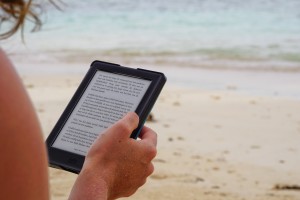
The Four Most Essential Online Resources
While I love the books in the previous section, these four resources are the most essential online resources for Theravadan Buddhism and Insight meditation. When I want to deepen my understanding of a given topic, these are the places I usually look first.
- Access to Insight. Has the largest online library of suttas, as well as countless essays, biographies and other reference guides. Try starting with the list of Thanissaro Bhikkhu’s essays, and pick one or two that sounds interesting, like The Truths of the Heart or Vipassana: One Tool Among Many.
- Insight Meditation Center. Largely done by Gil Fronsdal, there are countless essays, study guides, dharma talks, guided meditations, and so on. Try starting with his book The Issue at Hand, any of the articles from the first link, or the six-week Mindfulness Meditation Course for beginners.
- Dharma Seed. Likely the world’s largest library of free dharma talks. The strategy I use is either to pick a teacher I like or that someone recommends (e.g. Ajahn Sumedho, Joseph Goldstein, Guy Armstrong, Carol Wilson, etc.), or pick a topic I want to learn more about (e.g. vedana, renunciation, anatta or the five aggregates), and search for that teacher or topic.
- Common Ground Meditation Center Resource List. An impressive amount of resource lists on many key Buddhist topics, such as Ethics, the Four Noble Truths, Not-self, Impermanence, and so on. Scroll to the bottom of the link (on smartphone), or look at the tab on the right (on computer).
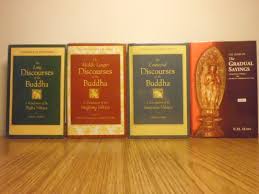
Advanced (diving into the suttas)
At a certain point, serious students eventually get interested in not just dipping their toes in the suttas, but diving in! Here’s an excellent short essay on how to approach the suttas / what they are / where to begin.
- Bhikkhu Bodhi – the Majjhima Nikaya. The heart of the Pali Canon consists of five Nikayas (volumes), and the Majjhima is considered the most essential. Bhikkhu Bodhi’s translation is considered the purest, though it is not available for free online (many others are through simple google searches). Make sure to first read Bhikkhu Bodhi’s Anthology, “In the Buddha’s Words.”
- Ajahn Pasanno & Ajahn Amaro – The Island. A collection of suttas on awakening or enlightenment w/ commentary.
- Thanissaro Bhikkhu – The Wings to Awakening. I’ve never read this lengthy book, but it’s said to be one of the most comprehensive and phenomenal sutta-based books that describes the path of awakening.
- The Dhammapada, Theragatha & Therigatha. These are three collections of poems and prosaic verses that capture the spirit of dhamma, attributed either to the historical Buddha (Dhammapada – Ajahn Munindo translation) or the early monks (Theragatha) & nuns (Therigatha).
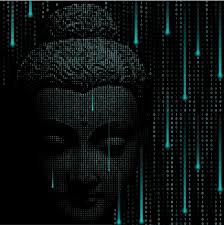
Technology
- Insight Timer App. The largest library of free guided meditations. Anyone can post a meditation to this app, so there’s a lot of fluff on here too, but I’d suggest starting with the Popular Teachers Section, and reading the bios to see if they sound legit. There’s also a timer for silent meditations, as well as a lot of great relaxing music / sound bowl meditations, if you want some audio without words.
- 10% Happier App. If you’re looking for a paid app with more curated content, this app is “secular” but all the major contributors are some of the most respected Insight Meditation teachers in the country. It’s top-notch and I especially like the meditations by Alexis Santos and Joseph Goldstein.
- GymBoss. I use this interval timer every day. It works as a non-smartphone meditation timer, but you can also attach it to your belt loop, and set it to buzz or ding at various intervals, like every 5 or 50 minutes, as a “mindfulness reminder.” Also, for a 30-minute meditation, you could set it to buzz at 10, 20 and 30 minutes, including using the first two as “reminders.”
- This isn’t in the instructions, but if you hold the upper left button while increasing the time, and then tap the top middle button it increases by 5 minutes instead of 10 seconds (very useful).
- It can be nice to have a meditation cushion (zafu) or a meditation bench, as well as a zabuton (a cushy floor mat if you have hardwood floors), but otherwise, you don’t need too much for meditation!
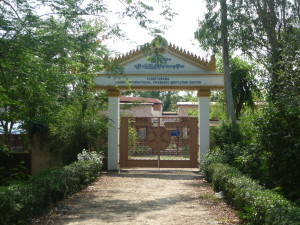
Teachers, Retreats, Communities and Practicing in “The Real World”
While you can certainly learn a lot from the comfort of your own home, most people usually don’t take their practice to the next level until they get engaged externally. Regularly going to a local meditation community, making meditation friends, finding a teacher/mentor to help guide you & answer questions, and taking the plunge into an intensive are all extremely helpful milestones. I’ve previously written articles on:
- A Guide to Why & Where to Go on Meditation Retreat in Oregon, the USA and Asia
- What to Look for in a Meditation Community
- How to Evaluate a Spiritual Teacher
- For those living in Portland, here’s a list of every Buddhist meditation group in town – and if you live elsewhere, googling things like “Tacoma Vipassana” or “Boston Zen” can go a long way.

Broadening Your Practice
Robert Augustus Masters (Emotions, Shadows & Spiritual Bypassing)
A psycho-spiritual therapist and teacher, his work is a profound synthesis of Western psychology and Eastern spiritual practice. His writings on emotion, spiritual bypassing and the “shadow self” were completely paradigm-shifting for me, and went a long way to helping me integrate spirituality into everyday life. I think studying a little bit on Spiritual Bypassing should be required for any earnest practitioner. He also has some excellent writings on conscious relationship (not included here).
- Spiritual Bypassing: When Spirituality Disconnects Us from what Really Matters. Here’s a short essay that explains the essence.
- Knowing your Shadow: Becoming Intimate with all that You Are (audio). This is a bit pricey, but the guided meditations are extremely powerful and led me into some major breakthroughs that I wasn’t accessing through meditation alone.
- Emotional Intimacy: A Comprehensive Guide for Connecting with the Power of your Emotions. The first fifty pages of this book are some of my favorite reading of all time, by any author.
Adyashanti & Other Non-Dual Teachers
Adyashanti teaches non-dual spirituality, which is very similar to the Advaita Vedanta approach of Ramana Maharishi, and the teachings of Eckhart Tolle. It gets to the core of Ultimate Truth in a very simple and direct way. I’ve personally found Adyashanti to be the clearest and simplest explainer of the group. His writings are on a very short list of my top recommendations, and offer an excellent counterpoint to the sometimes overly technical Vipassana approach.
- Adyashanti — The Way of Liberation & True Meditation (also available as audio).
- Ramana Maharishi — Collected Works. Though, all his books essentially say the same few things, so you can likely find plenty of free online resources.
- Michael A. Singer — The Untethered Soul. The very short Part I gives one of the best explanations of awareness that I’ve ever encountered. The rest of the book I had a more “meh” reaction to; although, Part I is so good, it’s worth it just for that!
- Eckhart Tolle – Through the Open Door. I don’t actually care much for his famous books, though I rather like this audiotalk. It’s not free, but here’s a link as it’s hard to find.
- I’ve also heard great things about Mooji, Gangaji and Rupert Spira, among others.
Zen Buddhism
Similar to Adyashanti & the nondual teachers, Zen offers a very earthy and simple counterpoint to Vipassana. Although, while I still study in this tradition, it’s so hard to capture in written word, as “Zen” could almost be literally translated as non-intellectual presence. I didn’t truly “get” Zen until I lived at a Zen Center, and one often just has to immerse themselves in it for a while. However, this timeless book comes close:
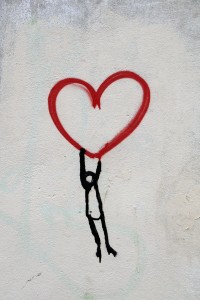
Overcoming Shame & The Inner Critic
There’s a bit of overlap here with the resources on love in the first section, as love is the basic antidote to shame. However, here are some great resources to look at and uproot the inner critic and sense of being “not enough / too much / don’t matter / unworthy.”
- Sharon Salzberg – “Real Love: The Art of Mindful Connection.” Her website also has many courses, guided meditations and a podcast.
- Tara Brach – Radical Acceptance. Fuses Buddhism with Western Psychology for a profound journey into self-acceptance.
- Kristin Neff – Self Compassion: The Proven Power of Being Kind to yourself. Her work shows an approach to self-compassion rooted in mindfulness that’s heartfelt, scientifically validated, highly pragmatic, and greatly influenced by Buddhism. Her website also has a number of excellent guided meditations and fantastic writing exercises.
- Brene Brown. Check out her 20 minute viral TedTalk on Vulnerability. Her Power of Vulnerability series was phenomenal, and the first two talks in particular offer a really powerful understanding of shame. She’s also written five New York Times bestsellers – can’t go wrong with any of them!
- Robert Augustus Masters. In particular, his “Knowing your Shadow” audio series had a number of guided meditations that helped me see my shame more clearly than I ever had before (and then be able to work through it).
- Non-Violent Communication. There are groups all over the world that meet to practice NVC (aka “Compassionate Communication). They offer a simple methodology that’s very practical, and can help a lot to develop empathy, intimacy, compassion, and how to connect with others, especially during conflict. The Founder of NVC, Marshall Rosenberg, captures the essence of the system in his phenomenal book, Non-Violent Communication: A Language of Life.
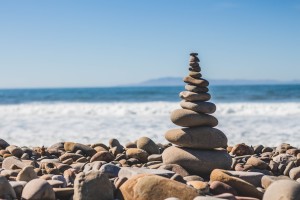
Dr. Andrew Weil & Balanced Living
Andrew Weil brilliantly and pragmatically weaves together Eastern and Western medicine, and, more generally, approaches to well-being. His recommendations on how to live a balanced and happy life have had enormous impacts on me.
- Spontaneous Happiness: A New Path to Emotional Well-Being
- Healthy Sleep (short audio)
- Breathing: The Master Key to Self-Healing (short audio)
Byron Katie & the Direct Investigation of Mind
Byron Katie was a normal American woman who had a spiritual breakthrough and developed a very simple model for self-inquiry and uprooting limiting beliefs. Everything she is saying is in alignment with the Buddhist & non-dual traditions, but her method is so simple that I’ve adapted it into my regular practice. I highly, highly recommend becoming familiar with her work.
- Loving What Is. This brief PDF summarizes the essence of the book.
After a Major Insight or Spiritual Breakthrough
After you’ve had a major breakthrough, sometimes it can be really disorienting. It might seem like nothing is real, or the things you once cared about have lost their allure. This is a great time to talk with an experienced practitioner or teacher. Alongside that, here’s a few quick resources to help orient to your new life. The Jack Kornfield book is a little more flowery, and the Adyashanti book is a bit more direct.
- Adyashanti – The End of Your World
- Jack Kornfield – After the Ecstasy, the Laundry
- Read this short article on “The Arising and Passing Away.” It very well may be what you experienced, and can be useful to have a word for it.
- An article I wrote on six things to know after a major insight.

Special Topics (ADHD, Pain, Habits, Anxiety, Trauma, etc.)
Sometimes the path to awakening runs through specific issues unique to our mind-body constitution. I’ve seen over and over people try to just go around these issues, a la spiritual bypassing, only to have them seep through the cracks. It can be very skillful to get real with ourselves and skilfully work with & through some of our psycho-emotional challenges.
- BJ Fogg – Tiny Habits: The Small Changes that Change Everything. I’ve read most of the leading books on habit transformation, and this has easily been the most powerful. I still draw on its principles often to shape my behavior — incredible read!
- Stefan Hofmann – The Anxiety Skills Workbook: Simple CBT and Mindfulness Strategies for Overcoming Anxiety, Fear, and Worry. I’ve looked at & read quite a number of books on anxiety, and this one has easily been my favorite. Highly recommended.
- Robert Augustus Masters – Ending our Suffering by Entering our Pain. If you’ve read this far, you know by now I’m a big fan of Robert Augustus Masters. Great book!
- Shinzen Young – Natural Pain Relief: How to Soothe and Dissolve Physical Pain with Mindfulness. Great if you’re looking for some specific practices you can do to minimize pain with meditation.
- Lidia Zylowska – The Mindfulness Prescription for Adult ADHD. I haven’t gotten around to reading this one yet, but have leafed through it, and looks pretty solid.
- Peter Levine – Healing Trauma. Perhaps the most influential person in the modern understanding of trauma, Waking the Tiger is his famous longer book that takes a deeper dive into trauma. However, Healing Trauma is a short, practical book designed for individuals who want to touch a little deeper into their own healing.
- David Treleaven – Trauma-Sensitive Mindfulness: Practices for Safe and Transformational Healing. I found this to be a really useful book to help individuals interested in meditation but have a history of trauma – presents a skillful & balanced approach.
- Bessel Van Der Kolk – The Body Keeps the Score. One of the most pioneering books in trauma work – it’s an essential read if you’re looking for a deeper understanding of trauma.
Yoga
Yoga was my gateway practice. I initially started practicing because it was accessible, and I knew it had more to offer than just stretching. The teachings of Richard Freeman have easily been the most powerful for me, as they combine the depth and integrity of classical yoga with a modern understanding.
- Richard Freeman — The Mirror of Yoga (book) or The Yoga Matrix (audio). He has a number of yoga & pranayama classes on this subscription site.
- Michael Stone — A Guide to Yoga Philosophy for the Contemporary Practitioner
- I’d recommend the Radhakrishna translation of the Bhagavad Gita and the Edwin Bryant translation of the Yoga Sutras, though I found it was difficult to truly grasp their significance until I had a teacher to put it all in context. If you want to dive in, find a study group!
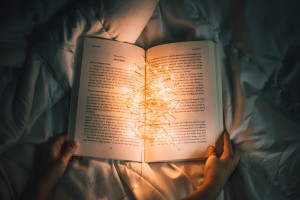
Spiritual Biographies
One of my favorite book genres, they make the spiritual path human, relatable, and provide loads of real-life wisdom. Also, perhaps most of all, I find them deeply inspiring to keep practicing.
Top Five Recommendations
- Stillness Flowing: The Life and Teachings of Ajahn Chah. The first 150ish pages tell his life story, and the next 850 or so capture his life’s teachings. In the Theravada Buddhist tradition, he is easily one of the most influential forces of the past couple hundred years, and his bio is quite engaging and insightful. The above link offers a free e-book or hardcopy. This link has the audiobook.
- Dipa Ma: The Life and Legacy of a Buddhist Master. The story of an Indian laywoman who became highly awakened. A quick, easy read with loads of relatable wisdom.
- Joseph Goldstein Dharma Story. This is a 2hr talk that Joseph gave during a retreat, sharing his life story. Of course, he is one of the most influential and revered Western Buddhist teachers of our time.
- Gil Fronsdal Dharma Story. This is a 2.5hr set of talks that Gil gave about his exploration of Zen & Theravada Buddhism, and on to his development as a dharma teacher. Similar to Joseph, Gil is a very influential and revered Western Buddhist teacher.
- Dancing in the Dharma: The Life and Teachings of Ruth Denison. One of the first Western Buddhist female teachers, this story relates her early life & the atrocities growing up in WWII Germany, her move to the United States, her spiritual quest, and her transition into a life of teaching. Great read.
- Great Disciples of the Buddha: Their Lives, Their Work, Their Legacy. Drawn from the original Buddhist texts, this book offers engaging narratives of 24 of the Buddha’s closest disciples. While I found it engrossing, it’s also definitely a bit higher on the nerd scale, so probably not the most interesting for the casual, modern reader.
Honorable Mention
- Crooked Cucumber: The Life and Zen Teaching of Shunryu Suzuki. Shunryu Suzuki was the founder of the San Francisco Zen Center, and one of the early Japanese Monks who brought Zen Buddhism to the United States, ultimately writing “Zen Mind, Beginner’s Mind.” Lovely read.
- Cave in the Snow. An engaging biography of an English woman who became a Tibetan lama and spent twelve years meditating in a small cave in the Himalayas.
- Be Here Now. A classic. In the first 40ish pages of the linked PDF, Ram Dass shares his mesmerizing life story.
- A Search in Secret India. Not so much a biography, but a spiritual seeking tale of an English man traveling across India nearly 100 years ago in search of a guru. The book climaxes as he meets the great sage, Ramana Maharishi.
- Autobiography of a Yogi. One of the best-selling spiritual books of all time, I don’t actually remember much about this one, but it was one of the first spiritual books I ever read and it blew my socks off at the time.
Great Enlightened Thai Buddhist Masters
While most monks refrain from talking openly about their insights, there is a culture within the Thai Forest tradition of speaking about one’s path to liberation once they have become completely enlightened, so as to inspire other monks and lay people to practice. Apart from the Ajahn Chah biography already listed, here are five more:
- No Worries. This is the autobiography of Ajahn Liem, who is Ajahn Chah’s successor. The biography starts on page 76. The whole bio is worth reading, but you could skip the rest and just read the chapter from pages 102-116, where at the end, he candidly describes the experience of awakening
- Ācariya Mun Būridatta: A Spiritual Biography. A biography of one of the most accomplished & influential Buddhist monks of the last several hundred years. It’s pretty mind-boggling at times — shares intimate details of his awakenings & journeys into spirit realms.
- Mae Chee Kaew: Her Journey to Spiritual Awakening & Enlightenment. An easy read about the life of a fully enlightened Thai countrywoman. Reveals specific details of her insights and spiritual powers.
- The Autobiography of Ajahn Dtun. I listened to audio recordings of this a while back and the quality was not so good and the story incomplete, though in putting this list together, I discovered a recent print edition that looks like it fixes all that. I’m excited to re-check it out.
- The Autobiography of Ajahn Jia. He was a pretty hardcore, rough around the edges monk, who was solely interested in total liberation. A well-written story and somewhat mind-blowing to hear his accounts.
Assorted Others
There are a number of other wonderful books that added something significant to my journey and it would feel like a shame to not include them, so in no particular order:
- Alan Watts – The Book on the Taboo of Being Who You Are
- Anthony de Mello – The Way to Love
- Lao Tzu – Tao Te Ching (Stephen Mitchell Translation)
- Chogyam Trungpa Rinpoche – Cutting Through Spiritual Materialism

For Fun
There are forms of media that can touch us, and help us deepen our journey without having to be so matter-of-fact. There are some documentaries on the list, but mostly these are stories and tales to help us approach the Dharma from a different angle.
Novels & Short Stories
- Susan Trott – The Holy Man. Short, easy read with a fun story.
- Herman Hesse – Siddhartha & The Glass Bead Game. The former is a short spiritual classic, and the latter is a long epic that won him the Nobel Prize for Literature.
- Gil Fronsdal – A Monastery Within: Tales from the Buddhist Path
- Ajahn Brahm – Who ordered this Truckload of Dung. A collection of short stories – here’s a 40-page free sample (make sure to read “two bad bricks”)
- Paulo Coelho – The Alchemist. Timeless parable – one of the best-selling books of all time.
Movies
- Samsara (2001). This is one of my favorite movies, which traces a Tibetan Lama’s life from a three-year retreat to entering lay life, getting married, having a child, and constantly feeling the pull back to monasticism and the pursuit of awakening.
- Samsara (2011). Shot over 5 years and 25 countries, there is no plot or dialogue, and is said to be itself a “guided meditation” exploring the unfathomable reaches of humanity’s spirituality and the human experience.
- The Dhamma Brothers. A powerful documentary about offering an intensive, 10 day Vipassana Meditation course to inmates in the Bible Belt. The only version I could find free online has Greek subtitles.
- Spring, Summer, Fall, Winter …. And Spring. This beautiful, zen-like film traces the life of a monk through the seasons. It really has to be watched as a meditation, as there isn’t a lot of big excitement.
- Amongst White Clouds. A relatively recent documentary about Chinese Buddhist hermit monks. I found this one really interesting.
- Kumare. A provocative film about an Indian man from New Jersey, who grows out his hair & beard, assumes a thick accent, pretends to be a Guru and builds a following of spiritual seekers. Can watch it free here with 3 or 4 “commercials.”
- Kundun. An epic biographical film about the Dalai Lama as a child. Really enjoyed this one. Due to various political reasons, it’s virtually non-streamable in the USA, though I did find it on that Youtube link!
- Crazy Wisdom – The Life & Times of Chogyam Trungpa Rinpoche. In the past 100 years, there are few Buddhist figures as polarizing as Trungpa, and I don’t exactly have a favorable opinion, but this is an interesting closer look at his life.
- The Buddha (PBS Documentary). I understand the historical Buddha’s life more as mythology than fact, but this documentary does a good job of telling that myth.
- Not explicitly Buddhist/Dharma movies, that either have deep Dharma undertones, or just a really wholesome message:
- Groundhog Day
- Life Is Beautiful
- Inside Out
- Won’t You Be My Neighbor (Mr. Rogers Documentary)

Hello David
Just dicovered your site and i’m loving it.
I have one question for you regarding the topic on ”Online Meditation Courses”.
I want to start meditating again and I’m thinking about one of this 2 courses:
1. Insight Meditation Center – six week online insight meditation course.
2. Insight Meditation: An In-Depth Course on How to Meditate.
You are saying that Insight Meditation: An In-Depth Course on How to Meditate is going to blow out of the water most of the other courses, so I want to ask you if it’s better then 1st option ( which is for free and I see you are recommending his stuff a lot in this blog post).
Please let me know your opinion,
Thanks in advance.
Hi Luur, I would say start with the six-week course from IMC. It’s free, and if you listen to a session or two and aren’t finding it helpful, then shift to the other one. Gil is an incredible teacher. You can’t go wrong listening to anything by him. Best wishes!